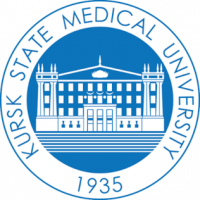

Kursk, Russia
LOCATION
ESTD. YEAR
TYPE
APPROVED BY
***Interim fee for the session 2025-2026 and subject to change as per the guidelines of State Level Fee Determination Committee, Government of Kurskaya Oblast**.
No, KSMU does not require an entrance exam for Indian students. Admission is based on academic qualifications and NEET scores.
The cost of living in Kursk is quite affordable. Indian students can expect to spend approximately USD 150–250 per month, which includes accommodation, food, transportation, and personal expenses.
The MBBS program at KSMU is 6 years, including 5 years of academic study and 1 year of mandatory internship
Scholarships are limited but may be available through the Russian government scholarship programs or other international agreements. Students should inquire directly with the university or respective government agencies
For international students, the MBBS program is taught in English. However, students are also taught basic Russian to interact with patients during clinical practice.
Yes, KSMU is recognized by: The World Health Organization (WHO). The National Medical Commission (NMC) of India. Other international medical councils and organizations.
The annual tuition fee for the MBBS program is approximately USD 5,000–6,000. Additional costs include accommodation, medical insurance, and personal expenses.
10th and 12th grade mark sheets and certificates. Valid passport (minimum 2 years of validity). NEET scorecard (for Indian students). Birth certificate. Passport-sized photographs. Medical fitness certificate and HIV test report.
Submit the application form along with scanned copies of required documents. Receive the admission letter from KSMU. Apply for a student visa with the invitation letter issued by the university. Travel to Kursk and complete the enrollment process at the university.
Indian students must have completed 10+2 or equivalent with at least 50% marks in Physics, Chemistry, and Biology. Qualifying the NEET (National Eligibility cum Entrance Test) is mandatory as per the National Medical Commission (NMC) guidelines for Indian students.